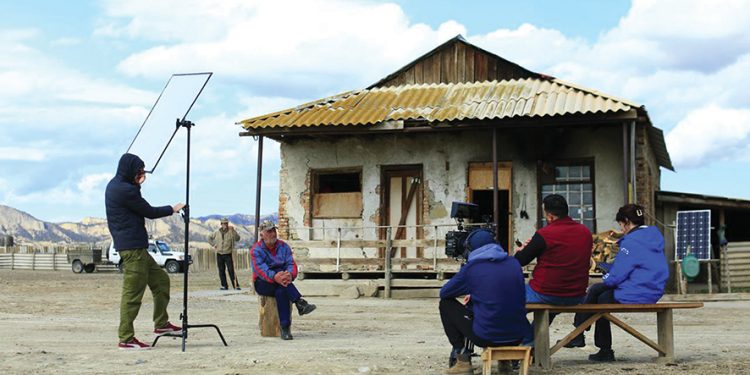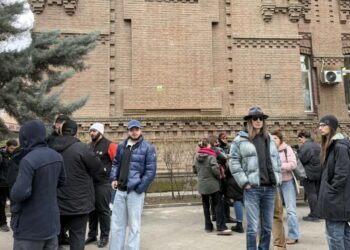In today’s world, where environmental challenges are becoming increasingly urgent, preserving natural landscapes and supporting local communities has become crucial. Society for Nature Conservation – SABUKO has been helping to address these challenges through a landscape restoration project on the Iori Plateau, where, unfortunately, unsustainable agriculture and overgrazing by domestic animals has led to severe soil erosion, seeing the habitat of local wildlife species increasingly reduced.
To improve the current situation, SABUKO has been implementing a landscape restoration project since January 1, 2019, with the support of the Cambridge Conservation Initiative.
The first phase of the project covered the Chachuna Managed Reserve in Dedoplistskaro municipality, while the second phase includes Chachuna, Kotsakhura Ridge, Samukhi Valley and the Vashlovani Protected Areas. After the successful implementation of the first phase, Sabuko, together with its partners, launched the second phase, during which the scale of pasture restoration and the circle of stakeholders, including local farmers and herders, was augmented.
The main goal of the project is the conservation of species and habitats within a single ecological network, where wildlife and human activities will continue to coexist harmoniously. SABUKO’s activities include the implementation of sustainable grazing systems to restore and improve pasture conditions and biodiversity; scientific research on the status of species populations and habitats, and the development of conservation actions; improvement of legislation and practices related to nature protection and use of natural resources; restoration of the Iori floodplain forest and other ecosystems; raising environmental knowledge and awareness; and promoting the development of the system of protected areas.
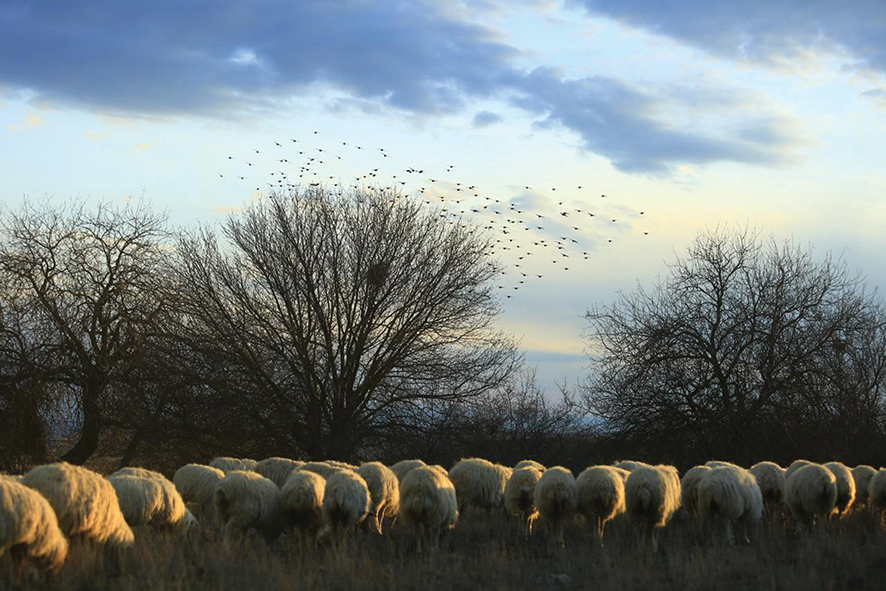
Documentary about nomadic shepherding
SABUKO, in collaboration with the production company Wingmen, has begun filming a documentary about the local wildlife and the lives of shepherds.
The documentary depicts the daily reality of local shepherds, as well as the challenges associated with sheep farming and the daily activities of shepherds – from making Guda cheese and shearing sheep, to processing wool and other authentic traditions.
Nomadic pastoralism has been a traditional activity in Georgia since ancient times; it is an ancient farming method, seeing shepherds use high mountain grassland ecosystems as pastures in the summer, and lowlands during the winter. The shepherd and his sheep spend several months each year on the road – from summer pastures to lowlands, and vice versa. At different stages of this cycle, shepherds receive wool, meat, leather and dairy products from their flock.
Shepherds stay on the winter pastures and tend to their sheep until around April-May, after which they move on foot to the summer pastures with their sheep – a tradition that is one of the most memorable moments and attractions of the Georgian mountains. From the Iori highlands, where SABUKO is implementing the landscape restoration project, in the summer, the shepherds move their sheep to Tusheti.
The documentary depicts this adventurous and exciting journey, highlighting its challenges, difficult climatic conditions and terrain, and the ecological and social problems created by sheep overgrazing.
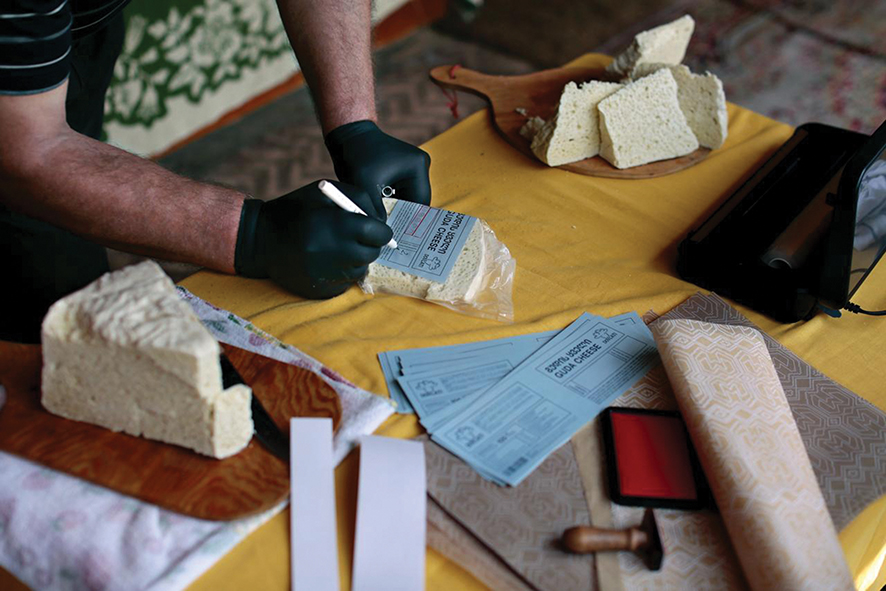
Branding sheep products for greater sustainability
Given the complex challenges, SABUKO implements sequential actions in various directions, including: strengthening and improving the system of protected areas; research and restoration of target species populations; restoration of pastures, forests and floodplains using various active management methods (introduction of rotational grazing, fencing of pastures and floodplains, promotion of natural restoration, arrangement of artificial gabions on the river to improve water access for floodplain vegetation, etc.); research and advocacy for the improvement of legislation and practice, including in terms of illegal extraction of natural resources, etc. Measures for the protection and restoration of species and habitats are aimed at improving pasture management.
With many years of experience in landscape restoration and cooperation with farmers, SABUKO created the brand “DOVLATI”. DOVLATI is an umbrella brand that allows farmers to unite their resources and create a production and supply chain for secondary sheep products. Modernizing the production of Guda cheese, raising awareness about it on the international market, improving the quality of products and bringing them into line with a single standard, and establishing fair market rules will provide an incentive for sheep farmers to produce more and better quality Guda cheese. Farmers will be able to reduce the number of sheep, receive long-term high income from Guda cheese and other secondary products, and improve their situation.
The long-term benefits that restored and healthy grassy ecosystems – natural pastures – bring should become visible gradually. Ultimately, it will contribute to the preservation of the centuries-old tradition of sheep farming, the restoration of pastures, and the conservation of biodiversity.
To learn more about the film and the brand Dovlati, GEORGIA TODAY spoke with Irakli Matcharashvili, Director of SABUKO.
“Our organization has been working on the Iori Plateau since 2019, a southeastern territory of Georgia which is distinguished by its biological diversity,” Matcharashvili tells us. “It is also an important place in terms of the use of natural resources. The natural pastures in this area have been used by Tushetian shepherds as winter pastures for centuries. Over the years, a certain harmony existed between human activity and nature, but, especially during the Soviet period, as a result of the incorrect and excessive use of natural resources, this harmony between nature and man was violated, and now it is necessary to work in many different directions to restore this harmony, and for nature and man to strengthen each other.
“It often happens that the degradation of nature has economic foundations, and it is not always enough to carry out conservation or administrative measures to solve the existing problems. If the root of the problem is economic, then certain economic perspectives must be introduced to solve the problem.
“One of the most serious problems,” he notes, “is overgrazing on winter pastures. After the collapse of the Soviet Union, a large number of winter pastures were lost. At that time, there were many more sheep than now, but these were taken to the neighboring Soviet republics for the winter – to the Russian Federation or Azerbaijan. Now the only winter pastures left in Georgia are the Iori Plateau: Samukhi, Vashlovani, and Shiraki Valley. As a result of overgrazing, soil erosion is intensifying, and this is a chain process – its deplorable consequences are gradually increasingly reflected on nature, people, and the economy.”
Matcharashvili says they have a plan to engage interest through their film: “This film will be intended for people who are involved in sheep farming. They should see the benefits of the brand DOVLATI we created, perceive us not as a competitor, but as a way to better sell their products and increase the price of their products.”
Yet, the film is aimed at the entire society, Matcharashvili notes – “it’s for anyone who is a fan of nature, and we give them a way to unite their appreciation of Georgian nature and products. Ultimately, when they buy Guda cheese, it will be a payment not only to the local entrepreneurs from whom they purchased this excellent product, but also to the survival of a species living in this ecosystem, be it a gazelle, a striped hyena, Eurasian lynx, an eastern imperial eagle, griffon vulture, black francolin, ring-necked pheasant or other living creature.”
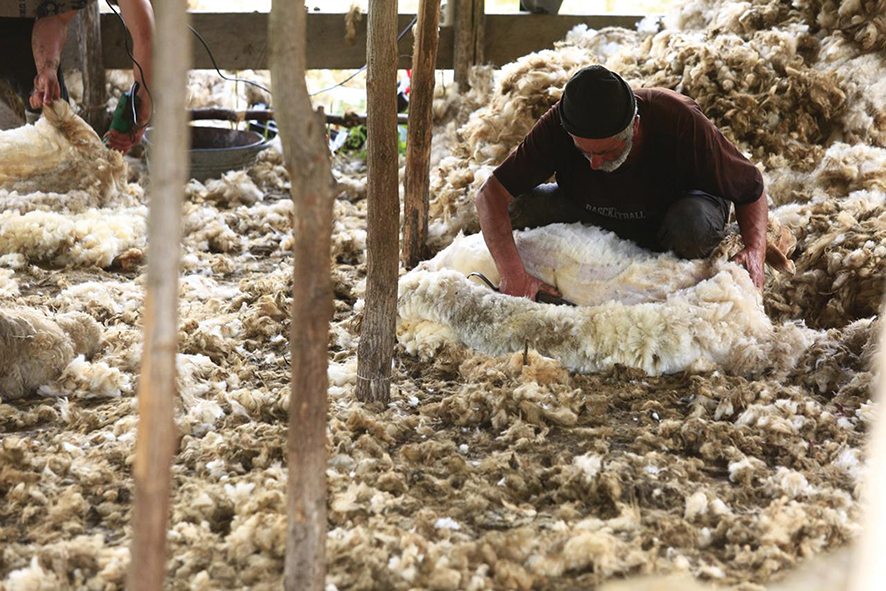
What does the brand DOVLATI have to do with biodiversity?
The SABUKO team aims to address this issue by introducing an economic component: the creation of an umbrella brand called DOVLATI. This brand will allow farmers to pool their resources and establish a supply chain. The primary hypothesis behind this initiative is that the higher the price of Guda cheese—whose production involves numerous challenges—the more farmers will be motivated to sell their authentic Guda cheese, made according to traditional methods. The long-term goal is to demonstrate to farmers that they can earn more by having fewer sheep grazing in the same area, thereby reducing pressure on natural resources.
This initiative is part of a broader conservation effort that will, on one hand, support local farmers and shepherds by encouraging the public to purchase Georgian products, and on the other hand, use the revenue generated to fund the restoration of a healthy population of gazelles and other wildlife in the region. The process of desertification will be halted, and diverse ecosystems will be restored. Most importantly, this will help restore harmony between humans and nature.
However, this is not the only issue that needs to be addressed. The challenges are multifaceted, ranging from poaching to gaps in legislation. While DOVLATI seeks to tackle one aspect of this complex problem—reducing pressure on natural resources by increasing the value chain and providing sustainable income for farmers—other areas must also be worked on. Alongside income generation, there is a critical need for an education program aimed at shepherds, encouraging them to avoid overgrazing and to manage pastures sustainably. This approach will help them realize greater long-term economic benefits. Without such efforts, natural resources will be depleted, and farmers may eventually have to abandon their economic activities altogether.
We are thinking and will work in this direction in the future to include nomadic shepherding in the UNESCO World Heritage List as an intangible cultural monument.
How will the preservation of Tushetian shepherding help preserve pastures and biodiversity?
As I mentioned, the key is that both must be preserved, and a way of harmonious coexistence must be found, because over the centuries, humans and nature have become an inseparable part of a single ecosystem. Nomadic pastoralism is also an essential element of this ecosystem. We do not view humans and nature as separate entities; rather, humans, with their cultural diversity, are an integral part of the ecosystem. In fact, failing to preserve this relationship would mean losing a crucial part of the ecosystem.
By Ana Dumbadze

